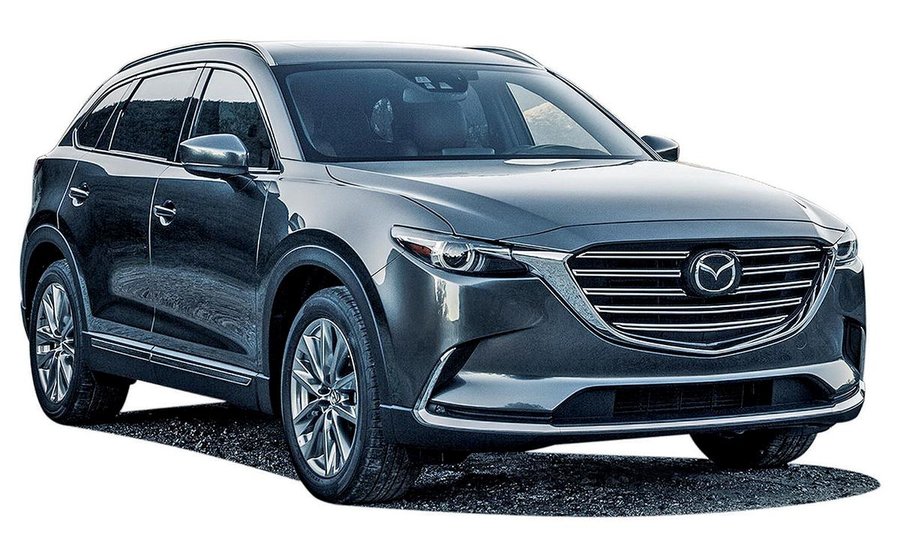Mazda Ventures Back Into Premium Tier

That topic has burned executives so many times, they've stopped quoting a timeline.
Specifically, things are looking upmarket at Mazda with the arrival of the redesigned 2016 CX-9 three-row crossover.
For more than a decade, the tiny Japanese brand has talked about occupying a semipremium space in the U.S. The thinking is that if Mazda can shed its image as a builder of economy-minded Mazda3 hatchbacks, it can move into the more profitable territory of higher-priced, better-equipped vehicles and boost brand loyalty, where it currently ranks among the lowest in the industry.
Mazda has reached into this echelon before, with products such as the 929 sedan and the Millenia, but never managed to hang on. With the CX-9, Mazda is signaling that it's ready to try again.
Putting an exclamation point on this effort is Mazda's new Signature trim level: Buyers who spring for it get goodies including all-wheel drive (normally an $1,800 option), Nappa leather seats and matte rosewood and aluminum trim.
Mazda will use the CX-9 as a test bed for the Signature line; if it sells well, the automaker is considering bringing it to the Mazda6 sedan and the CX-5 crossover, Robert Davis, senior vice president for U.S. operations, told Automotive News at the CX-9 press launch here in May.
The CX-9 Signature will start at $44,915, including destination. That's $7,410 more than the previous ceiling on the CX-9, but it includes plenty of features not on the earlier model, and it's noticeably less than archrivals such as the Honda Pilot, Toyota Highlander and Ford Explorer.
"For Mazda, it's not always about having higher prices, but it's about creating vehicles that have a higher value," Davis said.
Thus, the loaded CX-9 matches or beats competitors in amenities and safety technology. (Offering only a turbocharged four-cylinder against its competitors' V-6 engines undoubtedly helps Mazda trim some costs.)
But Mazda can't just throw leather at the problem and wait for profits and loyalty to jump. So Davis has a two-part plan to lure in the kind of premium buyers it has long coveted.
First, Mazda plans to target existing CX-9 owners, a loyal group of buyers who are also more comfortable springing for a well-equipped model. For this group, Mazda is offering to extend their leases until they can get their hands on the 2016 model.
Later in its fiscal year (likely around the holidays), Mazda will use events such as its Drive For Good test-drive-based donation campaign to increase trust among nonowners, a metric the automaker admits it scores poorly in.
"We've got to start communicating with those people directly and hopefully gain a little bit more confidence in their minds about being trusted and how we're focused around prestige and style," Davis said.
Once production is humming at full tilt, Mazda hopes to sell around 35,000 CX-9s annually in the U.S. That would top the nameplate's peak sales of 34,421 in 2011 and nearly double the CX-9's levels for the past two years.
Davis said he doesn't have specific conquest targets, but he does see white space between Honda's Pilot and its corporate cousin, the Acura MDX, and below the hot-selling Volvo XC90.
Mazda's upscale push peaks with the CX-9; Davis made it clear there are no plans to launch anything above it or any kind of hybrid variant.
Diesel, however, is still on the table, despite the cloud hanging over Volkswagen's diesel program. Not only would diesel boost Mazda's already-respectable fuel economy numbers, it would help differentiate the brand from its much-larger Japanese rivals and align it more with European luxury brands.
Davis said Mazda is considering diesel for two of its vehicles but wouldn't say which two or when they might arrive.
"I don't speak timing because I made three commitments and missed all three, so I keep my mouth shut," Davis said with a laugh. "We're still committed to it."


